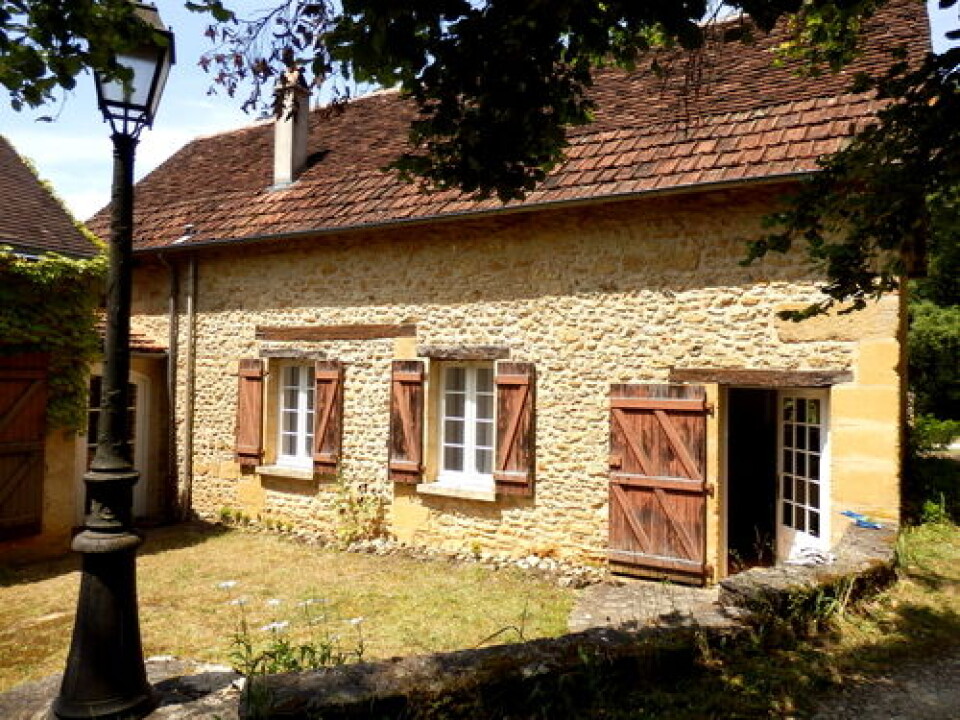-
How accurate are time estimates for French hiking paths?
Mathematical formula is basis for sign figures
-
My French cleaner is too familiar with me
Columnist Cynthia Spillman advises a reader on setting boundaries
-
Travelling during a residency card renewal: how can I show I am exempt from EES?
Tens of thousands of ‘Brexit’ cards are nearing expiry this year
Is it ok to have rental income in France if here on a retirement visa?
People on the most common for of ‘retirement’ visa must not work. Property incomes are complex – we look at some of the issues

Reader Question: Can we receive income from a property, such as a gîte, that we own in France while here on a retirement visa (we have to pledge not to work with this)?
To answer this question, there are several things we must look at in further detail.
The first is the exact wording of the retirement visa you are staying in France under.
We then need to consider the type of renting or letting you are considering doing and the type of property concerned.
What is ‘professional activity’?
Starting by looking at the visa, if you are a retiree you will most likely be coming to France on a long-term ‘visitor’ visa.
A key part of the official requirements of this is that you must not participate in any professional activity or work in France.
The key term here is ‘professional activity’ – not all forms of income from property are deemed to be ‘professional’ or related to work.
Obtaining money from property you own (in France or abroad) is one area where people on visitor visas can potentially receive money without falling foul of the rule against work, but it depends on the nature of the renting/letting and of the property.
Unfurnished rental
Renting out property unfurnished is seen as a form of investment income called revenus fonciers and this is not likely to pose a problem.
If you have income up to €15,000/year this is usually declared gross in a simplified system called le micro foncier which entitles you to a fixed 30% abatement. Otherwise it is declared au réel, claiming actual expense deductions.
Furnished letting
Money from furnished letting is typically declared under a system called le micro-Bic and is in most cases will be seen as a form of investment income, despite the fact the term Bic means ‘industrial and commercial profits’.
You will not normally have to register a full business and pay business social charges, all of which are signs of ‘running a business’. You can typically just declare the income in your personal annual income tax return in France.
Having said this, as a letter of furnished accommodation you will always be classified as ‘professional’ if two criteria are met:
1) Gross income from the property is at least €23,000 annually.
2) This income is more than taxable household income from pensions, salaries, annuities, or any other incomes.
In this case you would fall foul of the ‘no professional activity’ rule.
Apart from this rule, we also need to consider the different kinds of letting set-up.
Types of letting properties
1) Furnished or self-catered long-term rentals (rented from several months to the entire year or more) are usually seen simply as a form of private income which you declare on your annual personal tax forms, though bearing in mind the professional letter definition above.
2) Short-term furnished holiday lettings can fall under either ‘private income’ or income from a ‘professional activity’
3) Short term rentals which provide ‘hotel-style’ services, including chambres d’hôtes (where rooms and services are provided in part of someone’s own home) are classed as a professional activity and so would not be allowed on a visitor visa.
So, generally where letting is done on a long-term basis this will not count as ‘professional activity’ unless you meet the ‘professional letter’ criteria.
In the case of short-term furnished lettings (no more than three months per stay) if income is below €23,000, it is not classed as a professional activity, however tax officials state that if it goes above this threshold then you should pay business social charges even if you do not meet the full criteria shown above to be deemed a loueur en meublé professionnel.
That is therefore liable to be a grey area if the income exceeds this.
Be aware also that if you were to provide a lot of services to your gîte guests (beyond providing the accommodation) there is a risk of the activity being deemed a ‘hotel style’ business (para-hôtellerie), which is always considered professional.
This would be likely to be the case if you provided changes of bedding, breakfast, regular cleaning etc.
Tax officials add that in any ‘habitual’ furnished short-term letting activity you should apply to the local commercial court for a business Siret number, though you do not have to complete any further business formalities (until you reach €23,000).
Furthermore, in some cases furnished letting from which you make more than €5,000 can also give rise to the CFE business tax even if you do not have a registered business.
Even if these elements should apply to you (Siret, CFE tax) your letting activity would not be deemed to be of a fully ‘professional’ nature and we would consider it would be acceptable, though this is something you should ideally check further with a professional or the visa authorities.
This should give you an idea of the issues involved, however if your gîte income would be a major part of your plans for living in France, we would suggest taking advice about your specific situation and how it would be accepted by France.
We suggest you ask the French consulate in London and/or a financial expert working with the English-speaking community in France.
Related articles
When do French people really retire and what is the average pension?
Foreign retirees in France get clarification on income requirements
























